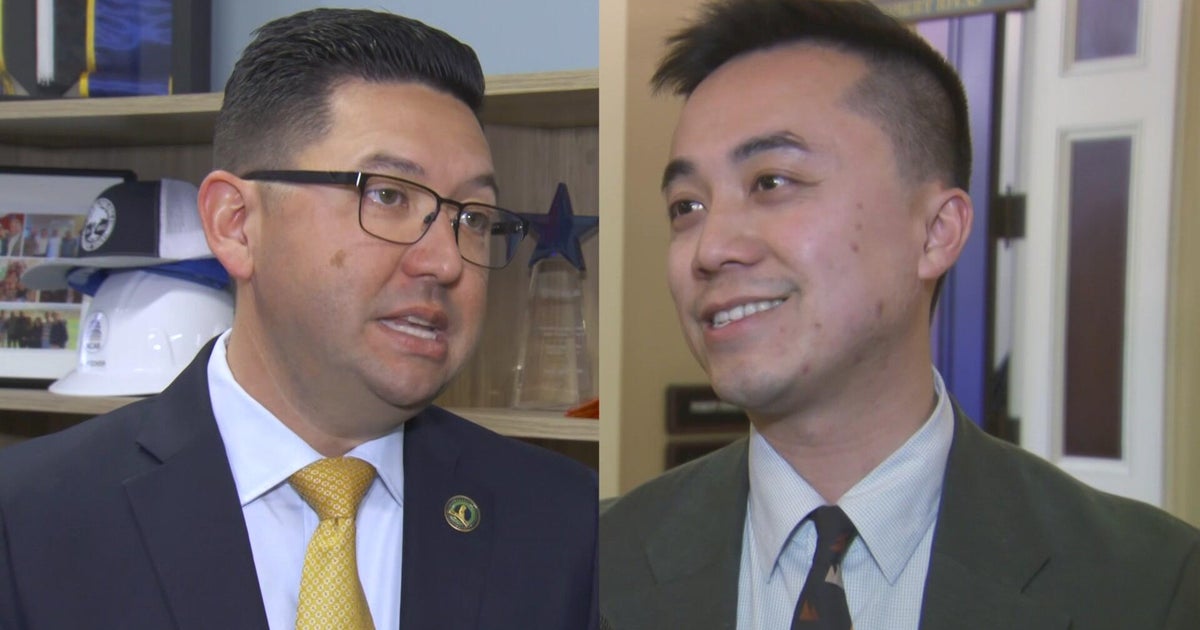Senate prepares to move on bill with funding for Capitol Police and security improvements
Washington —Democratic and Republican Senate spending leaders reached an agreement Tuesday on a $2.1 billion supplemental security spending bill to direct money to the U.S. Capitol Police and National Guard as they face squeezes from the January 6 assault on the Capitol.
Senate Appropriations Committee Chairman Patrick Leahy, a Democrat from Vermont, confirmed to reporters he had reached a deal with Senator Richard Shelby of Alabama, the panel's top Republican, on the measure. In addition to providing funding for the Capitol Police and National Guard, the package addresses U.S. government efforts to help Afghans who aided American troops in Afghanistan come to the U.S., Leahy said.
"We have the responsibility to take care of the Capitol Police in the wake of their incredible service on January 6th, and to reimburse our National Guard for costs incurred protecting the Capitol. We have the responsibility to pay for costs we have already incurred as a result of the pandemic. And we have the moral responsibility to stand with our Afghan partners who stood with us through two decades of war," the Vermont Democrat said.
Leahy said the bipartisan agreement addresses these needs and does so immediately.
"It is essential that we provide the National Guard and Capitol Police the funding they require without further delay," Shelby said in a statement. "It is also critical that we not leave behind those who helped us in Afghanistan once President Biden fully withdraws U.S. troops later this year."
The Biden administration launched this month its operation to support Afghans who assisted the U.S. during the 20-year war in Afghanistan and now face threats from the Taliban. The first round of applicants for special immigrant visas will be temporarily housed at Fort Lee, Virginia, while they complete the visa process.
Senate Majority Leader Chuck Schumer told reporters he is seeking an agreement with Republicans to pass the supplemental funding bill for Capitol security and police this week.
"These brave officers put their lives on the line defending the Capitol and each and every one of us, and they are heroes, plain and simple, and they ought to get the funding they need," Schumer said. "There is no reason, no reason for Senate Republicans to oppose funding the police and funding the National Guard."
The package provides $100 million for Capitol Police, $300 million to boost Capitol security measures, including new cameras and upgraded windows and doors, and more than $1 billion for the Pentagon. Of the Defense Department funding, $521 million is for the National Guard and $500 million is to address needs of the Afghan Special Immigrant Visa program. The legislation also includes $600 million for the State Department and $25 million for the Office of Refugee Resettlement at the Department of Health and Human Services for the visa program.
Under the deal, the number of authorized visas for Afghan partners is raised by 8,000.
The price tag for the Senate's legislation is slightly higher than the $1.9 billion approved by the House in May to boost security at the Capitol and backfill overtime pay for Capitol Police officers. The agency has diminished manpower and saw a drop in morale following the January 6 attack, during which more than 150 Capitol Police and D.C. Metropolitan Police officers were injured. One officer, Brian Sicknick, died after responding to the violence at the Capitol.
In the more than six months since the deadly riots at the Capitol, more than 70 officers have left the Capitol Police force.
Asked about the deal, Leahy told reporters that "we're going to take care of the Capitol Police."
Of the money for the Capitol Police, $31.1 million is to backfill expected overtime until the agency can hire more officers and benefits to keep current members of its force. The deal also includes $4.4 million for wellness and trauma support, as well as $3.3 million for intelligence analysts and technical resources.
The senators agreed to set aside $5.8 million for protective details for lawmakers in response to growing threats against them, and $2.6 million for basic riot control equipment for all officers.
The agreement comes just as the Capitol Police nears a funding shortfall without congressional action. Sources told CBS News this month that a fund used to pay officers is due to run dry in mid-August, but other money could be shifted in the short term to cover salaries through September.
The National Guard, too, warned of potential impacts to its readiness and training if it were not reimbursed the $521 million cost of its mission protecting the Capitol after January 6.
Roughly 26,000 National Guard troops were deployed to the nation's capital for President Biden's inauguration January 20 to assist with security in the wake of the Capitol assault. Roughly 5,200 troops remained in D.C. in March, but the Guard extended its mission at the request of Capitol Police, keeping 2,200 service members on until May 23.
All 54 states and U.S. territories contributed to the mission at the Capitol.
Alan He contributed to this report.



